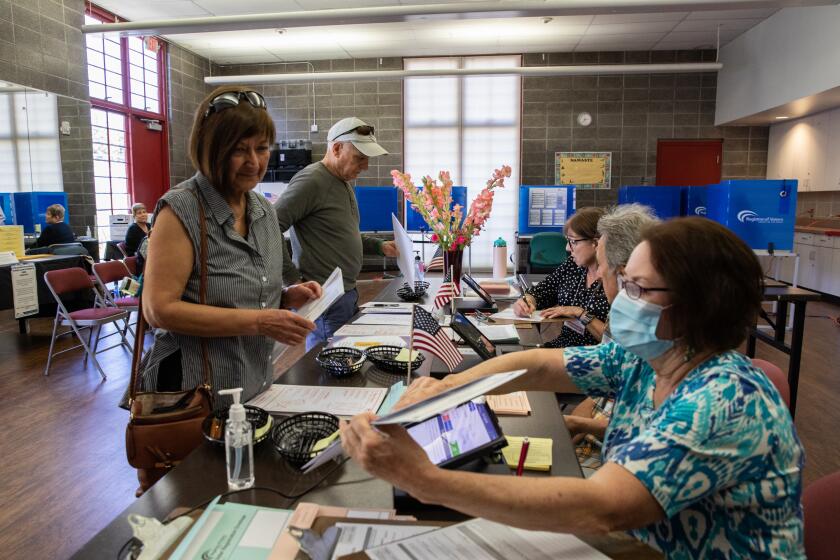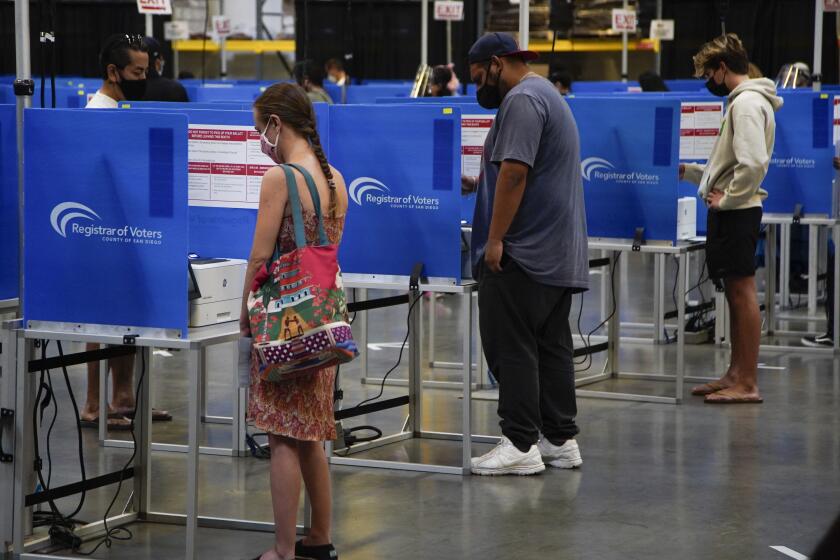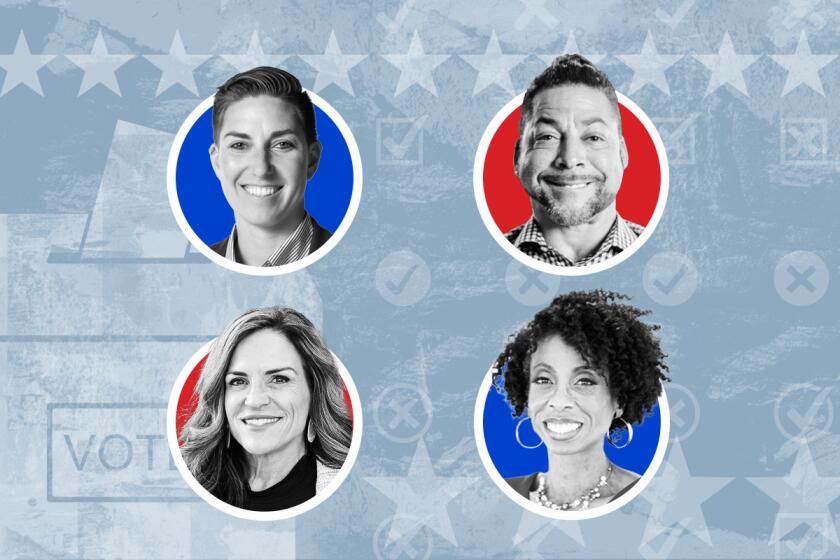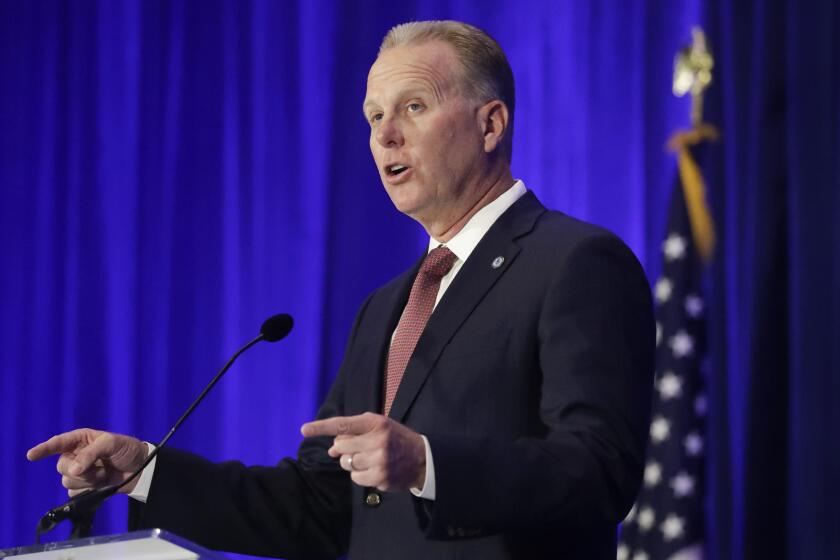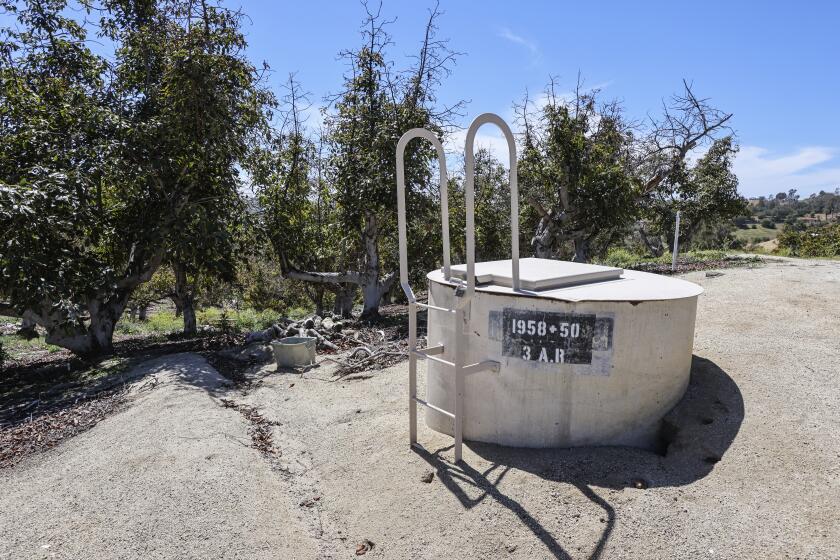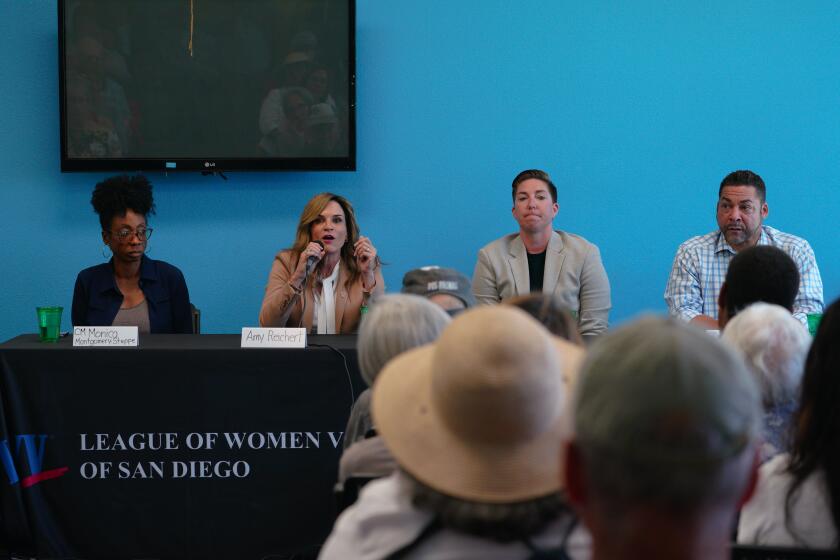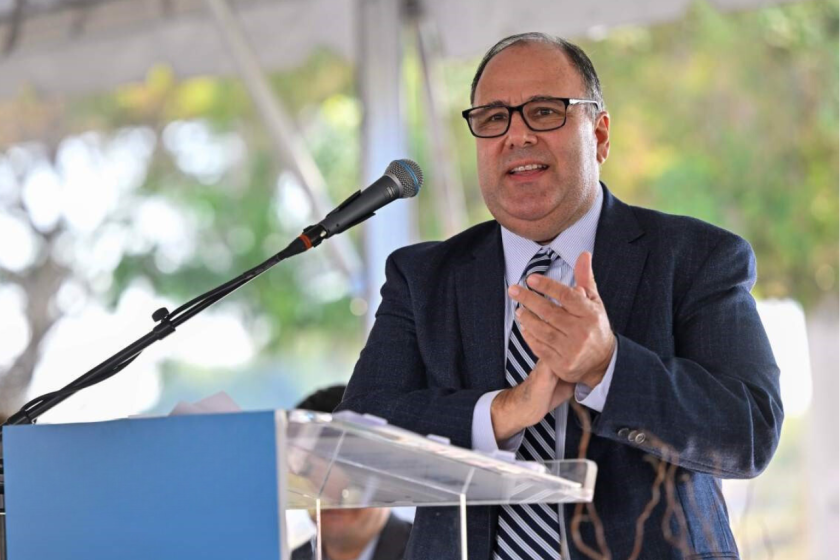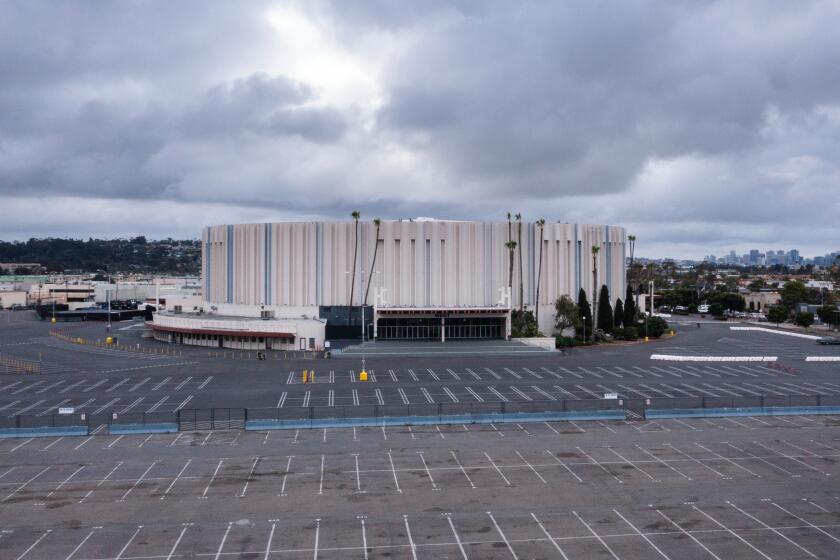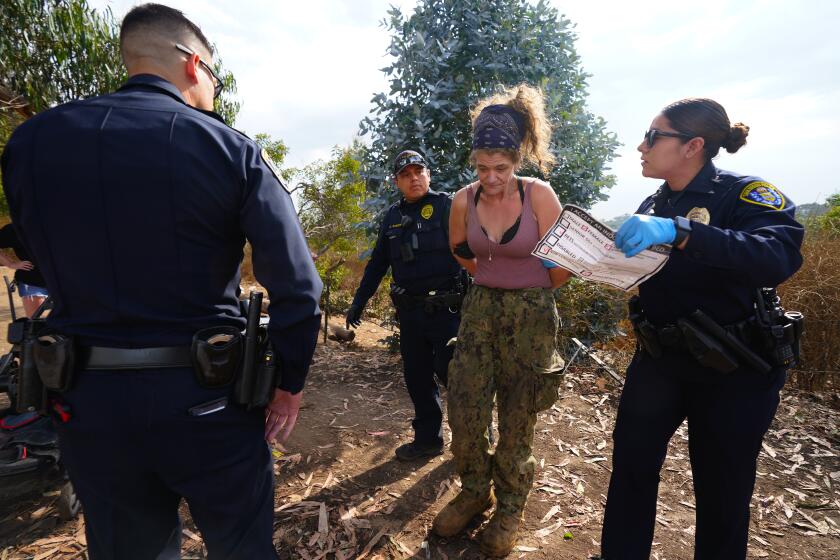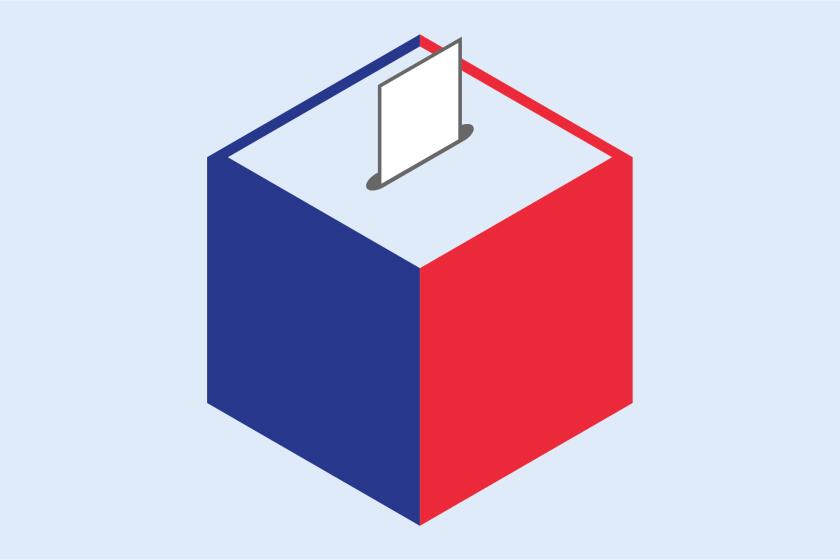County supervisors vote for rules to curb disruptive comments in board meetings
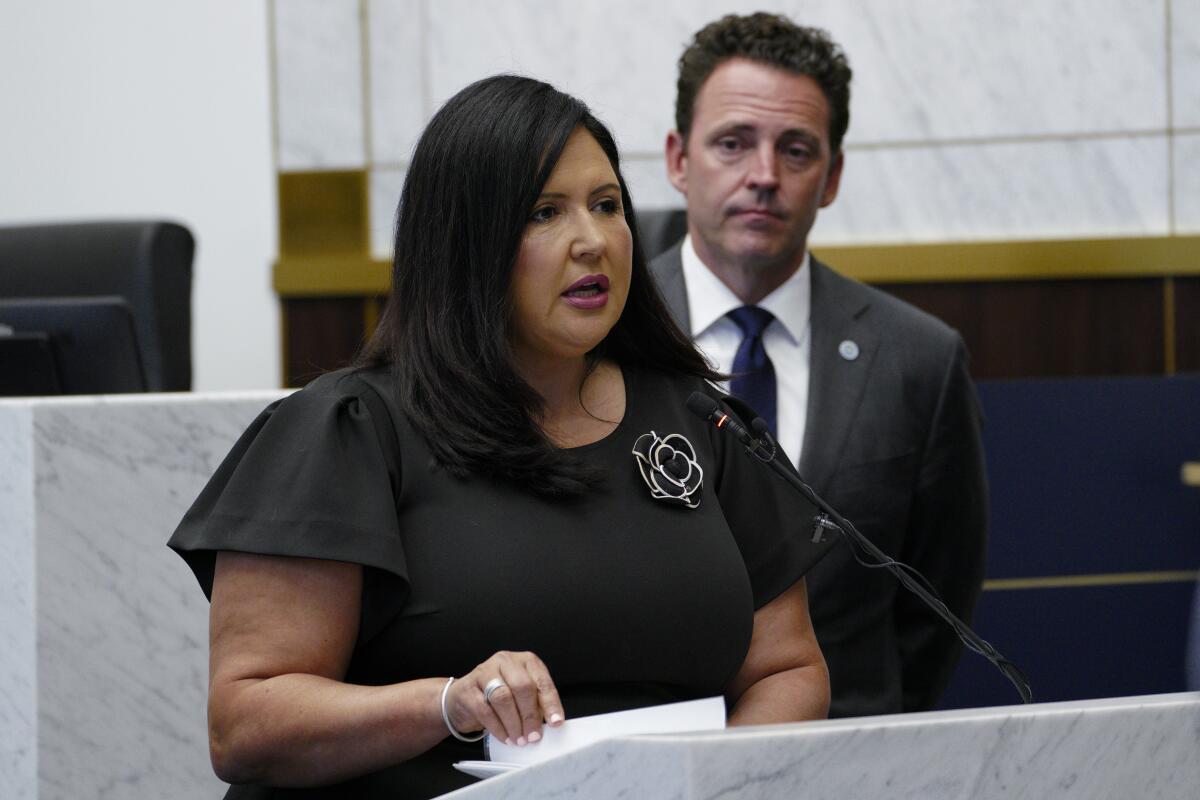
People who wish to speak at San Diego County Board of Supervisors meetings will face new rules after the board decided in a split vote Wednesday to update public comment procedures to curb threatening or racist speech.
The board approved the measure 3-1 in a special virtual meeting, with Supervisor Jim Desmond absent on vacation and Supervisor Joel Anderson voting against the measure, voicing concern about how the rules would affect rural constituents.
The board made the changes after a speaker at last week’s board meeting used racial slurs to attack the region’s top public health official, Dr. Wilma Wooten, after she gave a routine COVID-19 update. In recent months, other speakers have used threatening or abusive language to express criticism about supervisors and county policies, especially pandemic response.
“There’s become an increasing trend of public comment periods where people are making vulgar, profane, racist, hostile-type comments,” Chair Nathan Fletcher said. “We welcome dissent at the County of San Diego. We welcome disagreement. We welcome people coming down and making our democracy stronger by expressing contrary points of views. But we have an obligation to protect the county employees who are part of our system here and not allow a hostile work environment to be developed.”
Supervisors Nora Vargas and Terra Lawson-Remer said the new rules aim to create a respectful environment for the public to express competing opinions.
“I come from the world of being an organizer and an advocate,” Vargas said. “So many times did I head before the board, and never once did I head in that direction where it was disruptive or racist. Today what we’re doing is trying to make sure that we allow everyone to have access and bring their views across.”
Some of the rule changes would reduce people’s speaking time. Anderson said he worries that would disadvantage rural residents who have to travel long distances to participate in supervisor meetings and who may not have Internet access to join a board meeting online.
He said restricting public comment because of some disruptive speakers would unfairly limit opportunities for other San Diegans to give input.
“What I’m worried about is that we’re allowing the heckler’s voice to force our hand to shut down legitimate input,” Anderson said.
Anderson proposed an amendment that would require the county board letters to be in print 30 days before a vote to provide time for residents to comment. After the other members rejected the idea, he said he would not support the motion to change public comment rules.
The new rules prohibit “the utterance of loud or threatening language,” whistling, clapping, stamping of feet, speaking over or interrupting the recognized speaker if those actions disrupt “the orderly conduct of any meeting.”
Members of the audience often clap, cheer or boo to support or oppose a speaker, and Fletcher has frequently warned people about those interruptions. He said the restrictions will apply to audience members, not to individuals at the podium.
The revised public speaking protocol also limits group presentations, where three or more people talk about a topic for up to 10 minutes total.
Such presentations would only be allowed for land-use decisions and appeals and would not be permitted for other matters, except with the board chair’s consent. Speaking time for any one group member would be limited to four minutes out of the 10 minutes total.
The rules also limit input on the board’s consent calendar, which allows supervisors to dispatch numerous routine items with a single vote. Before, members of the public could request to remove any item from the consent list to allow for full discussion. Now, under the changes, only a supervisor or county administrative officer can ask for a removal.
The public can still comment on items in the consent calendar, but they will have just two minutes to discuss the whole list, instead of being able to comment for two minutes on each item. This change aims to reduce off-topic commentary.
Another change permits a tightened time limit for items where many speakers have signed up to comment. Under the old rules, each public speaker had two minutes to make their point, but the new rules let the board chair cut that allotment in half, down to one minute per individual, if there are more than 10 people wishing to comment on an item.
Fletcher said the standard time would remain two minutes.
The rules also empower the board chair to address a public speaker if the person digresses into “loud, threatening, profane or abusive language language” or veers off topic.
The board held the special meeting online, not in person, after giving a day’s notice. The public could watch the meeting and phone in their comments.
Brigette Browning, executive secretary-treasurer of the San Diego & Imperial Counties Labor Council, called into the meeting to say the rules are needed to protect county workers and ensure that they can do their jobs without harassment or abuse.
“We fight every day to ensure that our workers are treated with dignity, respect and safety and no one should come to work every day and face that kind of hate,” she said. “Hate speech is not conducive to good government.”
Riverside County Supervisor Victor Manuel Perez said the effort is a model for other government agencies balancing the right to free speech with the need for public decorum.
“Unfortunately some people make openly racist, misogynistic, homophobic and threatening comments at these public hearings,” Perez said. “As county supervisors we must protect freedom of speech, without compromising respectful dialogue and order.”
Civil rights activist Shane Harris said he believed the racist comments crossed a more dangerous line than other threats or insults, and the county should view Wednesday’s changes as a starting point for reigning in abusive language.
“I urge you to approve these protections and make them even stronger,” Harris said.
Other speakers objected, saying the new rules go too far and punish the majority of public speakers for the actions of a few.
For instance, a number of people said the potential one-minute speaking limit will provide inadequate time to express views about complicated items. That time limit, if enforced, could undermine San Diegans’ rights to speak directly to supervisors on important topics, said Kathy Kassel, president and CEO of the Lakeside Chamber of Commerce.
“Do not allow a small handful of antagonists ruin democracy for the rest of us,” Kassel said.
Some people objected to the rule prohibiting members of the public from pulling items from the consent calendar for separate consideration. Although many consent items are simple administrative matters, others could have significant impact on some constituents, they argued.
“I ask that you reconsider the proposal to disallow the public to pull consent items,” said Amy Reichert, co-founder of the organization ReOpen San Diego, which has protested COVID-19 policy. “Sometimes consequential items are in consent.”
One speaker said the rule allowing the board chair to revoke speaking time would turn meetings into a modern version of “The Gong Show,” referring to the 1970s TV program in which performers were cut off by a loud gong.
The rules take effect immediately, starting with next week’s board meetings on Tuesday and Wednesday.
Get Essential San Diego, weekday mornings
Get top headlines from the Union-Tribune in your inbox weekday mornings, including top news, local, sports, business, entertainment and opinion.
You may occasionally receive promotional content from the San Diego Union-Tribune.

